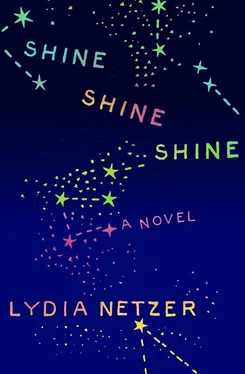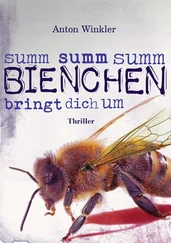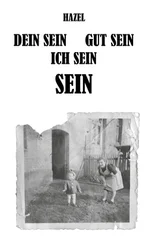Sunny took the next sheet. There was a tiny stick person in one corner with an obligatory scoop of hair on each side of its head, a triangle to represent a skirt, and a label: Mommy. The entire rest of the page was filled up with something that looked like a map overlaid with a topographical drawing. There were buildings, farms, and many, many tiny trucks along the roads that radiated from the buildings to the farms. All was done in a quick, infantile scrawl, but the details were all there. Every wheel of the trucks, and the cargo was varied. A pig, a stack of sacks, a strange machine. Labels. Parenthetical explanations. Signs.
“He sees me with hair,” said Sunny. She was awestruck. She thought how her mother would feel about this. Would a grandmother feel disappointment, resignation? Would she say that it was as if all her efforts with Sunny had been in vain? In the mind of the grandchild, the daughter had a wig on. Had she failed as a mother? She remembered the second terrible thing she had said to Maxon on the day before he went into space: My mother never thought you would make a husband. You and your goddamned robots. She told me not to marry you, and look at us now. We’ll never be right. None of us.
“Well,” said the psychiatrist, taking the papers back from Sunny’s hand, “our school is full of children with special talents, but clearly Bubber is some kind of a savant. A four-year-old just doesn’t draw pictures like that.”
“Ah, savant,” said Sunny. “But surely that’s not a problem. So, you must have something else?”
“Well, here’s the last one,” said Miss Mary, holding up a sheet for them all to look at together. “Here I asked him to draw his friends.”
On the paper was a hexagon. On each of the points was a circle with a capital letter inside. The points were connected around the outside, and also through the center, some of them. The different connecting lines were of different widths. Next to some of them were numbers, or letters. There were rows of letters separated by commas. Some points were not connected to each other. Down at the bottom were different names followed by a list of Xs. Ben XX. Sarah XXXXX. Jacob X. Zoe XXXX. Sam XXX. Like that. It reminded Sunny of a lot of the work that Bubber had done on his own with ciphers. He was always coming up with his own way of writing things down.
“What is this?” said Miss Mary, pointing to the hexagon.
“Well, I don’t know,” said Sunny, “but if I had to guess I’d say he has six friends, and these lines and symbols depict the way they are related to each other. Or, maybe he has five friends and he’s this one here, connected to all five. Yes, this circle has a B on it.”
“But you can see what I mean,” said Miss Mary.
“What do you mean?”
“You have this,” Miss Mary waved her hand at the papers she had produced, “and then you have his auditory response scores, which are like that of a deaf child.”
“He’s not deaf,” said Sunny.
“No, he’s not deaf, but he still can’t hear. He can’t respond. He doesn’t answer. He screams if he can’t have the chair he wants, even if the chairs are all blue. Even if the pencils are all red, he screams if he can’t have the one he wants. Yesterday he threw Miss Kim’s coffee mug on the floor and shattered it. She was afraid! Bubber’s behavior is outside the range of what we are prepared to deal with—and—”
Mr. Dave interrupted her. “Mrs. Mann,” he said, “we all just love Bubber. He is really the most remarkable child.”
“Obviously he does know their names,” Sunny said. “Or at least the letter their names begin with.”
“We have tried to tell you, Mrs. Mann, that Bubber needs a higher level of intervention. Bubber is so special. Your doctors—”
“They’re not all the same color blue, though,” said Sunny. “And the pencils are not all the same length. He perceives differences that other children don’t perceive. That’s all. You want him on more drugs? Is that it? He’s already on Adderall, Dexedrine … The only thing left is…”
“Haldol,” suggested Mr. Dave in the mildest tone, as if he had been offering sailing as a pastime for a sunny afternoon.
“Your husband is an engineer?” asked Miss Mary.
“He’s an astronaut,” said Sunny. Not entirely true.
“Well, technology,” said Mr. Dave.
“So?”
“Just another piece of the puzzle,” said Miss Mary.
Sunny remembered the final terrible thing she had said to Maxon on the day before he went into space: It is all your fault, him being this way. It’s you. You fucked up. You did it! It’s your fucking genes, your brain, it’s like little baby Maxon all over again. Tell me you don’t see it. Tell me you don’t see yourself when you look at him. You did this. You did this to our child, it’s who you are, you’re all over him. Now show me a facial expression that goes along with that information.
“Miss Mary, I want to thank you for your input,” said Mr. Dave. “And now I need a chance to speak to Mrs. Mann.”
Miss Mary went out, leaving the drawings on the desk. Sunny picked them up. Then they were alone, she and Mr. Dave. Just two bald people talking over their options. In the next room, a small boy with a bright shock of orange hair sticking straight up out of his head was pushing a paintbrush around on a piece of paper, monitored by a blonde in her forties with pigtails.
“Mrs. Mann,” said Mr. Dave, “we would like to work with you here. We can change Bubber’s therapy schedule, take more time for him to be one-on-one with the teachers. But I need you to talk to your doctors and refocus your medications. It’s time.”
Sunny stood up. She could feel her teeth wanting to grind each other into powder.
“Where is my child?” she said.
When Mr. Dave brought Bubber out into the lobby, he was jumping on one leg.
“MOMMY,” he called, and leaped into her arms. “Top came off.”
She squatted down to catch him, and he rubbed his little hand casually over her head. She took the watercolor he had been working on. It was still dripping. She could see a rocket and the labels and words he had tried to form with the too-fat brush, bleeding into each other. “Rocket,” he said, too loud. She squeezed him hard and, as pregnant as she was, she picked him up, and his little backpack, and carried him out of there. She thought to herself, We will never return here. We will find another school, one that appreciates the lunatic labels and has the right length of blue pencils. Even if we have to go to the moon.
A week ago, a day ago, with blond waves touching her shoulders and curling around her ears, she would have stopped at the desk, bent over at the waist, arranged another appointment. She would have acquired a different small brown bottle, administered doses, continued to smile and drop off and pick up and accommodate and advance. She would have gone home, would have prompted her gangly husband with the appropriate things to say and do at a cocktail party, dressed him, impressed on him the importance of sticking to the basics. Now, she felt differently about everything. More impatient, more severe. She felt she had been living under clouds, underwater, hearing at low volume, seeing at a distance. Without the wig, what she saw was all very awful. Yes, the whole world. There just wasn’t any point in pretending that it was fine. She felt like shit for talking so harshly to Maxon. She wished for any way that she could take it all back.
She tried to see the world as Bubber saw it. Every road sign, billboard, every marker of a store, house, or car, was a grouping of letters and numbers. What did he see in these small collections? Did they jump out at him, letter by letter, like orange butterflies or like speeding bullets? Were they rainbows glimmering or were they strobe lights illuminating his brain? Did they look like harp strings sound? Looking straight at all the letters, everywhere they showed up, could get overwhelming for anyone. She wondered if Bubber would ask to live a different life, if he could. If Bubber would change himself in any way, given the choice. Or if he would come off the pill bottle and be crazyass Bubber who rocks and sings.
Читать дальше









